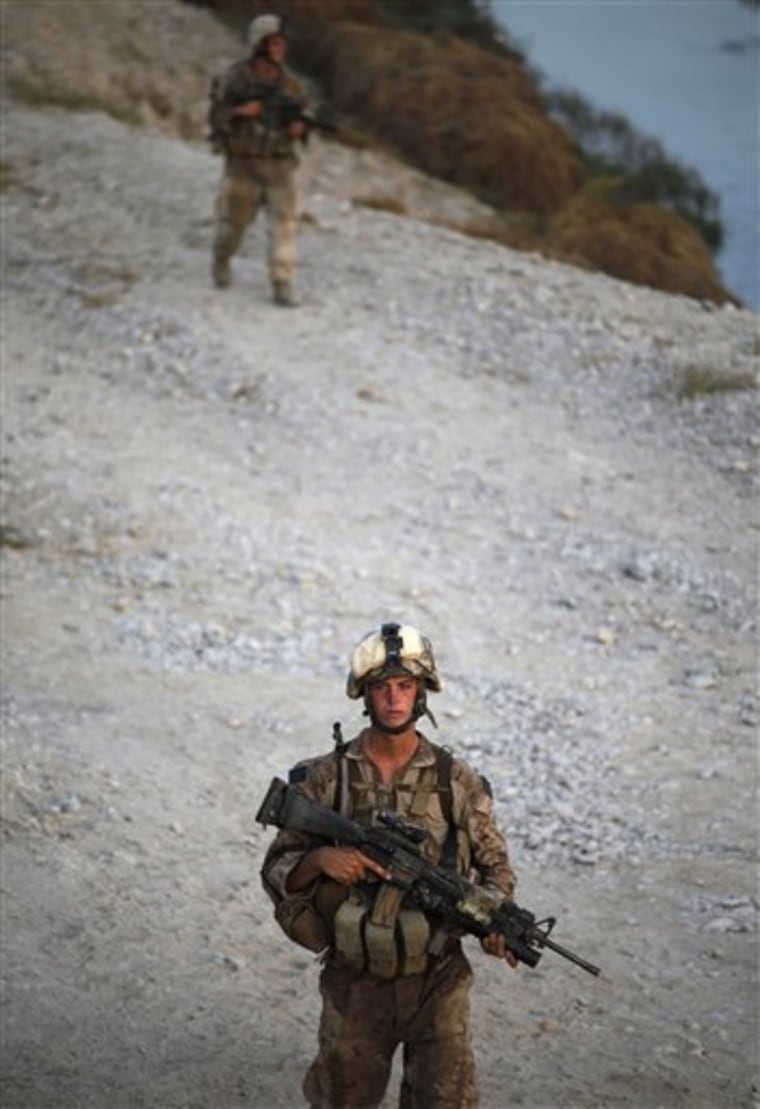Escalate or scale back.
The blunt conclusion laid out by the top U.S. commander in Afghanistan — "The status quo will lead to failure" — poses a stark and urgent choice for President Barack Obama: intensify the foundering conflict with more troops or narrow the mission to targeting terrorists instead of protecting Afghans.
In his report to Obama, Gen. Stanley McChrystal makes clear his view that ultimate success in Afghanistan requires overcoming two main threats: the insurgency and a "crisis of confidence" among Afghans in their own government. Both must be addressed, and together they require more resources, he says.
"Insufficiently addressing either principal threat will result in failure," the general concludes.
The McChrystal assessment puts to the test Obama's assertion just six months ago that he would put the war effort on a path to success by providing what the previous White House didn't.
"For six years, Afghanistan has been denied the resources that it demands because of the war in Iraq," Obama said March 27. "Now, we must make a commitment that can accomplish our goals." He approved the dispatch of 21,000 more U.S. troops and promised a comprehensive improvement in the U.S. effort to stabilize the country, train its security forces and advance justice and economic opportunity.
Election adds doubts
Obama also said then that he would reevaluate after the Afghan presidential election, which was held Aug. 20. The charges of widespread fraud and ballot-rigging that emerged after the election have only added to doubts in Washington about whether the Afghan government can be counted on as a reliable partner.
The president thus far has not endorsed the McChrystal approach, saying in television interviews over the weekend that he needs to be convinced that sending more troops would make Americans safer from al-Qaida. Tellingly, Obama reiterated in those interviews that his core goal is to destroy al-Qaida, which is not present in significant numbers in Afghanistan. He did not focus on saving Afghanistan.
"I'm not interested in just being in Afghanistan for the sake of being in Afghanistan or saving face," Obama told NBC television's "Meet the Press" on Sunday.
McChrystal's report, first made public Monday by The Washington Post, was not intended to present Obama with a list of military options. The general left no doubt where he stands. He believes a full-scale, comprehensive counterinsurgency campaign is what is required, and that time is of the essence.
But White House officials say the president is considering more than the McChrystal assessment as he weighs courses of action. He is relying on the views of key Cabinet aides, including Defense Secretary Robert Gates, who said last week that he has yet to make up his mind on the wisdom of committing more troops.
Problems with scaling back
Gates has said, however, that he does not believe that a scaled-back approach that focuses mainly on killing al-Qaida leaders — rather than the McChrystal view that counterterrorism operations should be part of a broader campaign to build up Afghan support for their government — is the right answer.
"The notion that you can conduct a purely counterterrorist kind of campaign and do it from a distance simply does not accord with reality," Gates told reporters earlier this month. "The reality is that even if you want to focus on counterterrorism, you cannot do that successfully without local law enforcement, without internal security, without intelligence" — without a major presence in Kabul.
McChrystal's immediate superior, Gen. David Petraeus, sees it similarly.
"He (McChrystal) is the first to recognize not just the extraordinary capabilities but also the limitations of counterterrorism forces in Afghanistan," Petraeus wrote in an opinion article published Friday in The Times of London.
Anthony Cordesman, a military analyst at the Center for Strategic and International Studies who advised McChrystal in Kabul this summer, said in a telephone interview Monday that Obama has invited doubt about his commitment to succeeding in Afghanistan by putting off a decision on devoting more resources.
"The truth is that we don't have that much time," Cordesman said. "Waiting to see what happens with existing resources and existing troop levels, when the commanding general has already said that's an unacceptable risk, basically invites defeat." He added: "The president has yet to show he can lead in this war."
